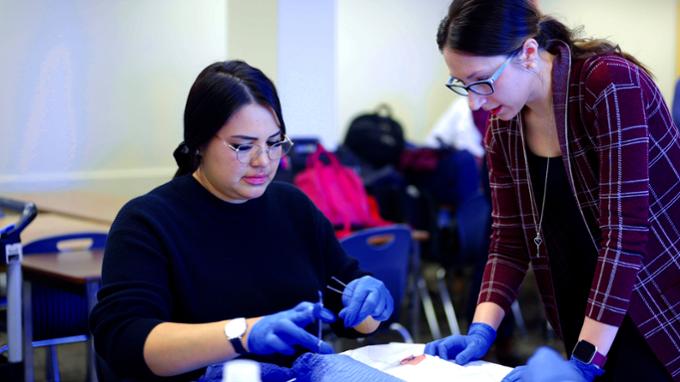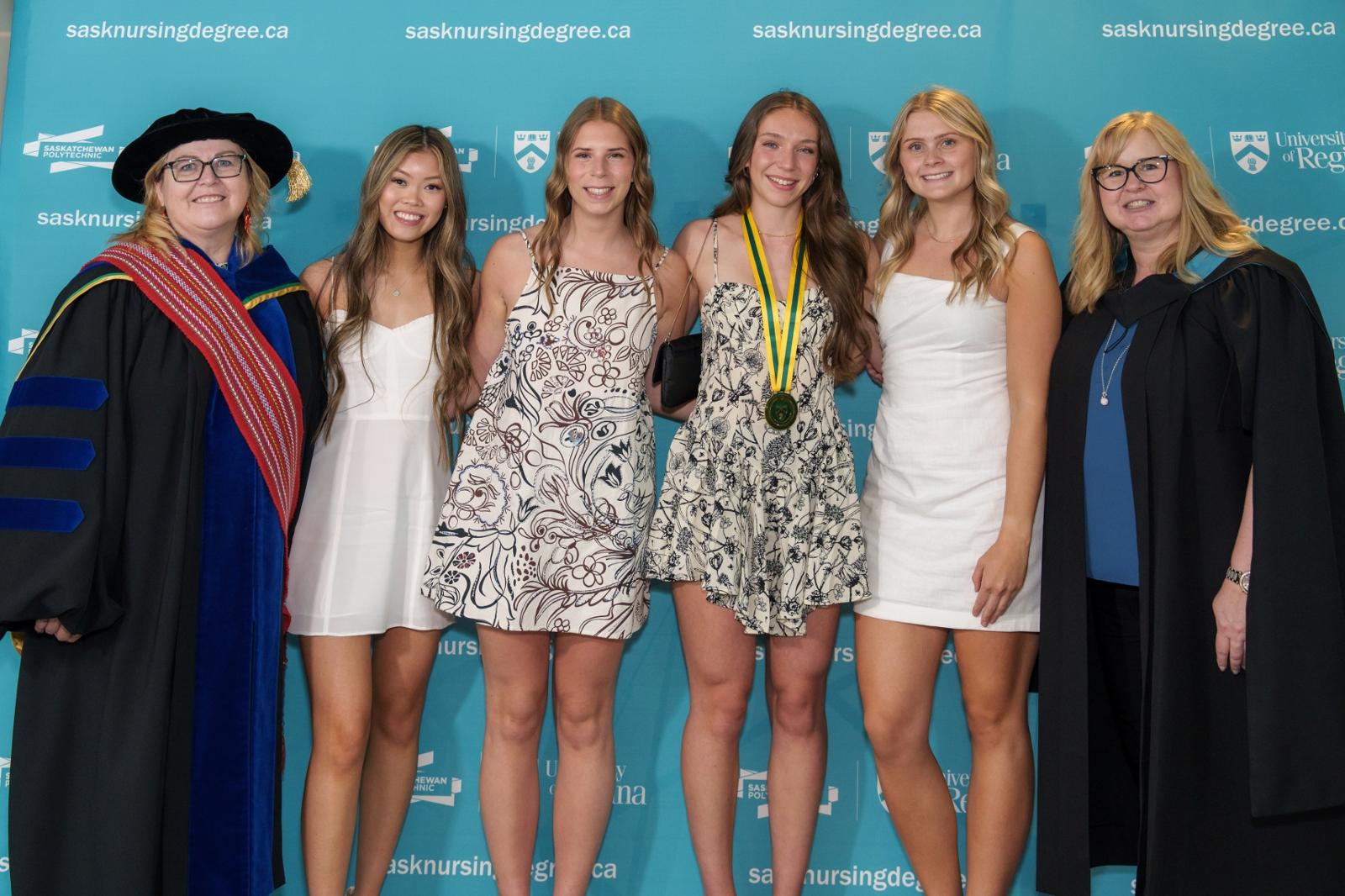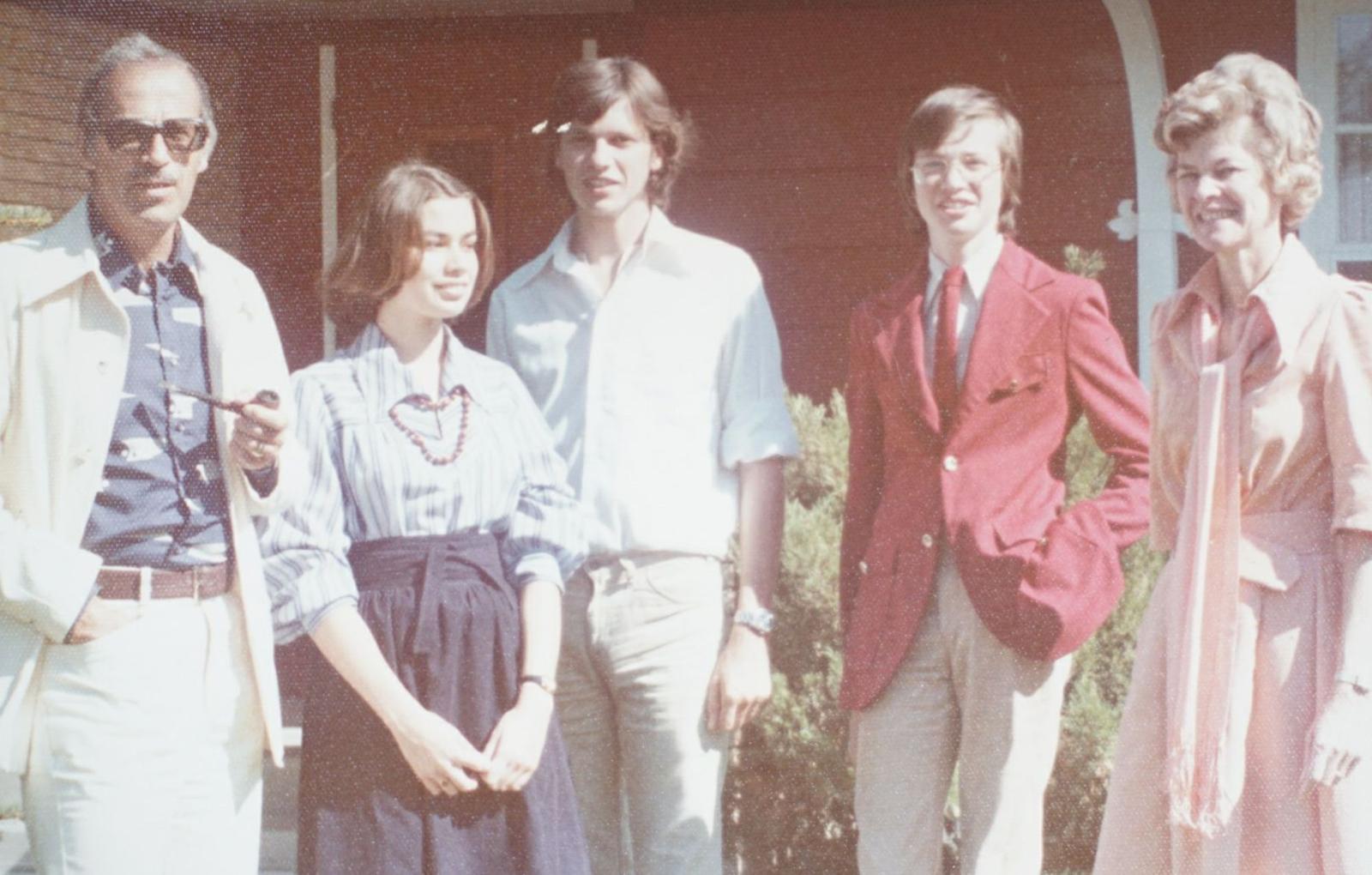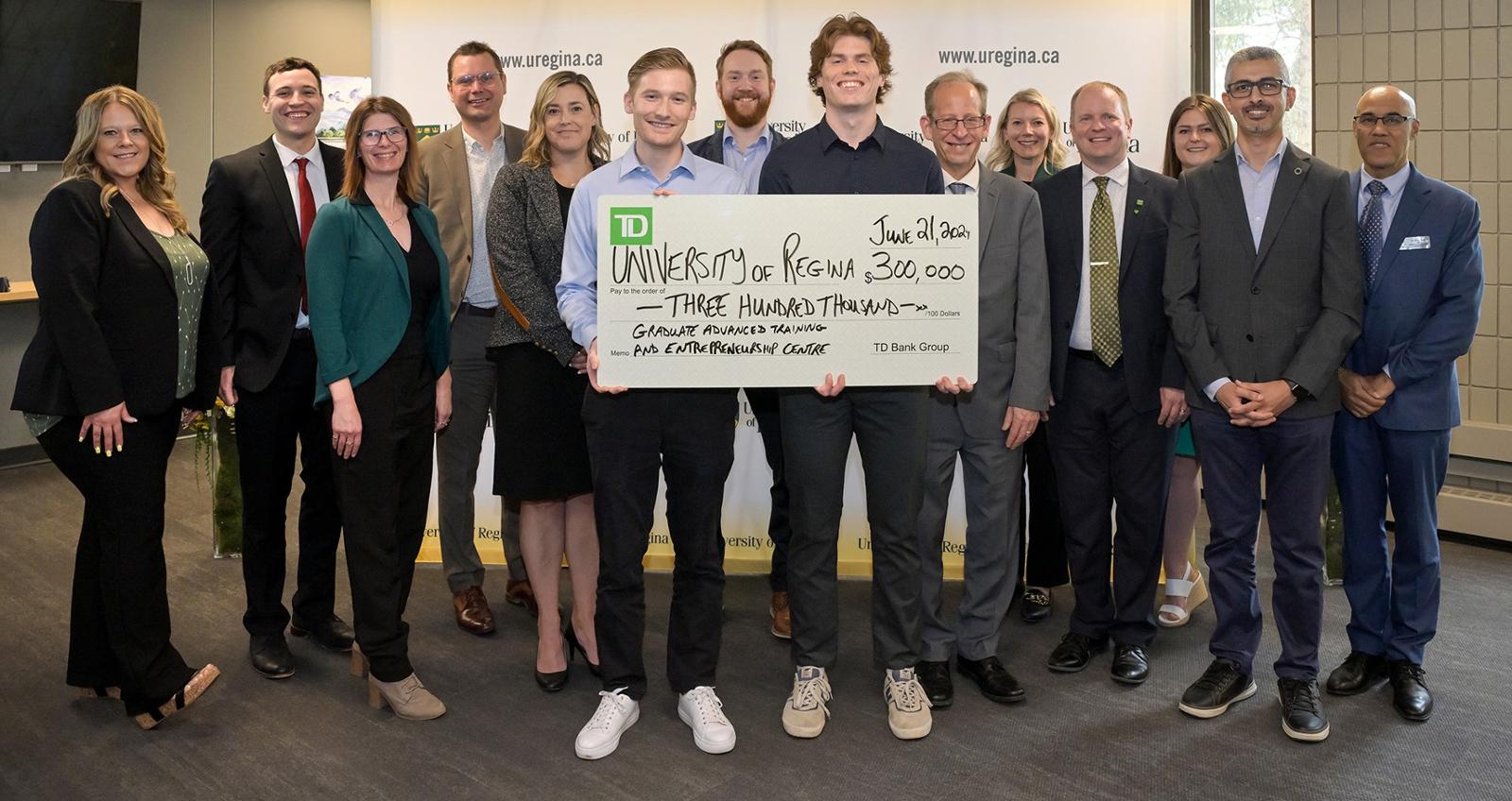The Collaborative Nurse Practitioner Program (CNPP) is a two-year, online graduate-level program offered through a partnership between Saskatchewan Polytechnic and the University of Regina.
Aside from a one-week residency in Regina during the second year, the program is delivered entirely online, which makes it an attractive option for registered nurses across the country who are looking to balance their studies with their full-time jobs and other responsibilities while staying in their community.
It’s really beneficial that it’s all online. I really like that you can do either part-time or full-time scheduling. Being in a rural community, it allowed me to work while going through the program. Kelsey Ermel, second-year Collaborative Nurse Practitioner Program student
A Nurse Practitioner (NP) is an integral part of the health-care system providing care in community settings such as primary care clinics, nursing stations, long-term care facilities and in health care teams.
An NP has the authority to perform advanced health assessments, diagnose health problems, order diagnostic tests, and prescribe medications. The NP manages all aspects of patient care from the point of entry to the health-care system, through to the community in which they reside, participating in health community policy development, health promotion, and illness prevention.
Apply now to the Collaborative Nurse Practitioner Program (CNPP).
We caught up with a few CNPP students while they were in Regina for their one-week residency to find out why they decided to become an NP and to learn more about the important role NPs play in the community.
Banner photo: University Advancement and Communications
About the University of Regina
Set in the heart of the Canadian prairies we are a comprehensive, mid-sized university where the opportunities are as limitless as the horizon. Our campuses are on Treaty 4 and 6 - the territories of the nêhiyawak, Anihšināpēk, Dakota, Lakota, and Nakoda peoples, and the homeland of the Michif/Métis nation. It is our responsibility to strengthen relationships with Indigenous communities to build a more inclusive future for all. Our three federated colleges, 10 faculties, 25 academic departments, and 18 research centres foster innovative research with practical and theoretical applications. We are committed to cultivating the potential of our 16,000 students and supporting their health and well-being. We take learning beyond the classroom through work and volunteer experiences to develop career-ready graduates.
Let’s go far, together.




